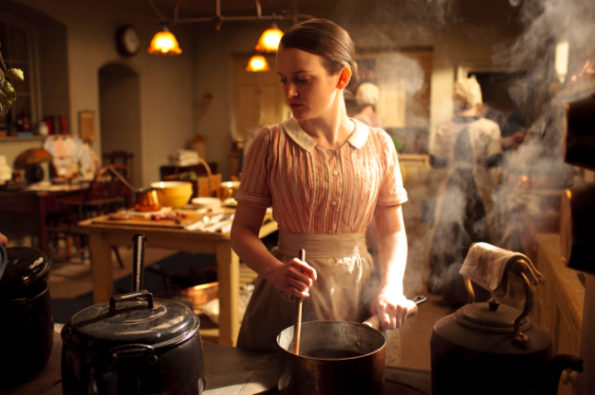Search
To search for an exact match, type the word or phrase you want in quotation marks.
A*DESK has been offering since 2002 contents about criticism and contemporary art. A*DESK has become consolidated thanks to all those who have believed in the project, all those who have followed us, debating, participating and collaborating. Many people have collaborated with A*DESK, and continue to do so. Their efforts, knowledge and belief in the project are what make it grow internationally. At A*DESK we have also generated work for over one hundred professionals in culture, from small collaborations with reviews and classes, to more prolonged and intense collaborations.
At A*DESK we believe in the need for free and universal access to culture and knowledge. We want to carry on being independent, remaining open to more ideas and opinions. If you believe in A*DESK, we need your backing to be able to continue. You can now participate in the project by supporting it. You can choose how much you want to contribute to the project.
You can decide how much you want to bring to the project.

In Downton Abbey, Lord Grantham at the beginning of the twenties, of the last century, watches how his world falls to pieces. The First World War has changed the whole scenario, however, what really affects him are the changes in attitude, domestic changes. Beyond his incapacity to manage his finances within the system of investment funds and stock exchange, what fazes him most, what he can´t come to terms with is that one of his daughters, Lady Sybil, falls in love with, and ends up marrying, the chauffeur, a commoner, an Irishman and a Marxist, or that one of his daughters, Lady Edith, decides to become a journalist. Small changes, which reverberate in the servants’ quarters, amongst the numerous servants in charge of a family that occupies an enormous house. Daisy, the kitchen maid, receives a proposal from a small proprietor to manage a farm. There not only would she be able to care for the cows and animals, but would also be able to sell homemade products, puddings and the like. She responds to the proposal saying that she had always thought she would dedicate her life to being a servant. The farmer replies that does she really think that in forty years time the world will be the same, with maids and lords, large houses and domestic servants.
Jorge Carrion has written a lot about television series, in Teleshakespeare (that well crafted title that explicitly states the book’s thesis, that series have usurped the territory of the great novel of the 19th and 20th, the chronicle), on his blog and facebook account. And he stresses how they always refer to reality. As if in imitation of that anthropologist “to think about others is to think about ourselves”, to narrate the vicissitudes of an English family at the beginning of the 20th century has repercussions on the here and now. However, Downton Abbey doesn´t (as yet) relate the possible problems of the crash of 29 nor the pre-war ambience of the turbulent Europe in the thirties. No, it talks of change, a change that some understand and others don’t. And it’s already more than enough to know that it is occurring, to understand it would be sublime. Just remember the words of the farmer: “do you really think that the world will be the same in forty years time”. It’s enough, he can´t even begin to imagine what it will be like.
This is the contemporaneity of the series. We know that the world won´t be the same in forty years, we are not even sure if it will be the same in fifteen, ten or even five years. But returning to Lord Grantham, it is the domestic things, the changes in attitudes that unnerve him. So, I couldn´t stop thinking about a copy of the kitchen maid Daisy, converted into an artist, critic, curator or gallerist. The project of making a career producing works, publishing texts in prestigious magazines, organising exhibitions of these unique pieces in museums with more unique pieces, thinking about opening a gallery so that these artists can sell these works to these museums. And, watching the series from my computer, I asked myself the very same question that the farmer asked.

http://www.davidgtorres.net
"A desk is a dangerous place from which to watch the world" (John Le Carré)